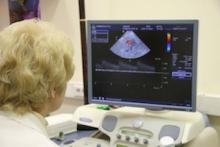Telehealth: Promoting Healthier People and Stronger Local Economies - Community Broadband Bits Podcast 336

Many of our regular listeners will recognize this week’s guest voice. Craig Settles has been operating as an industry analyst and consultant since 2006. He’s also host of the Gigabit Nation radio talk show and Director of Communities United for Broadband.
In recent years, Craig has focused much of his attention on telehealth and the ways communities large and small can use their broadband infrastructure to implement telehealth applications. The ability to use high-quality connectivity to deliver healthcare has expanded as access to broadband and innovation has increased. Craig describes the ways “telemedicine” has evolved into “telehealth.” In this discussion, Craig and Christopher discuss the ways that telehealth positively impact residents and their healthcare providers. Communities are also discovering that access to online medical care and related applications can spur economic development in rural and urban settings.
While exploring different approaches to implementing telehealth via publicly owned infrastructure, Craig also discovered some of the challenges facing local communities. In this conversation, he and Christopher talk about some of the different issues that may arise and how local communities have addressed those issues. He also has words of advice for those who want to be sure to develop infrastructure that is capable of providing the kind of connectivity that can provide this increasingly critical feature. Craig has some suggestions for resources for people interested in learning more and for local communities also interested in making telehealth a widely available service.
Check out more from Craig at cjspeaks.com.
This show is 28 minutes long and can be played on this page or via Apple Podcasts or the tool of your choice using this feed.
Transcript below.
We want your feedback and suggestions for the show-please e-mail us or leave a comment below.
Listen to other episodes here or view all episodes in our index. See other podcasts from the Institute for Local Self-Reliance here.
Thanks to Arne Huseby for the music. The song is Warm Duck Shuffle and is licensed under a Creative Commons Attribution (3.0) license.


